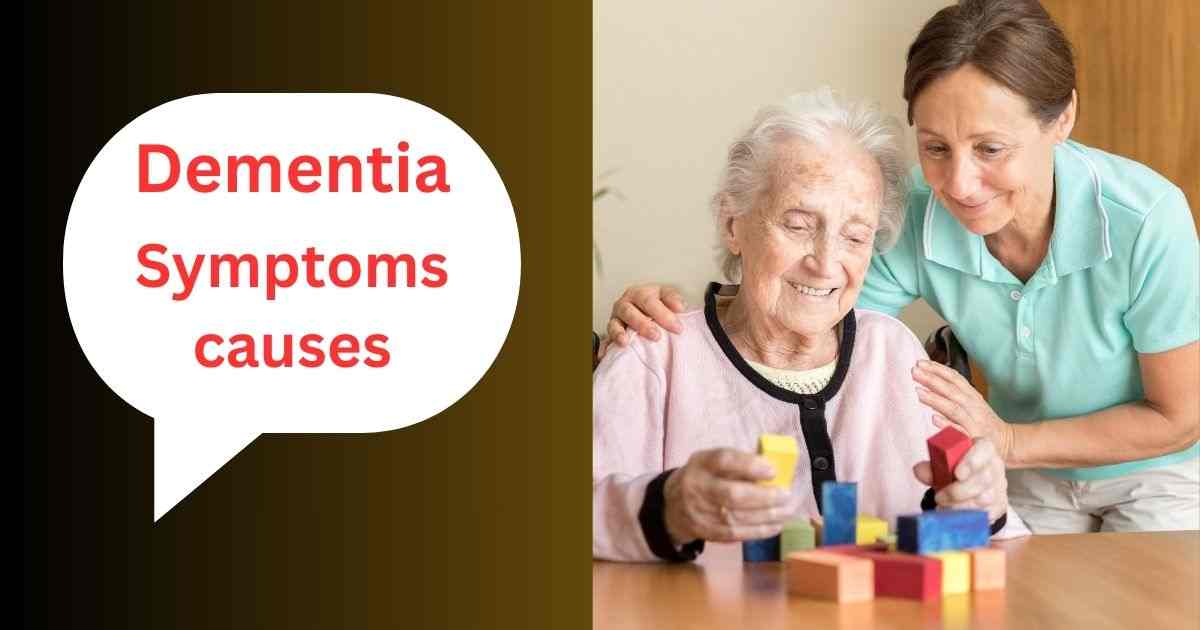Dementia is a broad term encompassing a range of symptoms associated with a decline in memory or other thinking skills severe enough to reduce a person’s ability to perform everyday activities. It’s a condition that affects millions of people worldwide and poses significant challenges not only to those diagnosed but also to their families and caregivers. Exploring the symptoms of dementia and its causes are crucial for early detection, management, and support for individuals affected by this condition.
Symptoms of Dementia
Dementia symptoms can vary greatly depending on the type and stage of the condition. However, some common signs and symptoms include:
Memory Loss: One of the most recognizable symptoms is memory loss that disrupts daily life. This may involve forgetting recently learned information, important dates or events, and asking for the same information repeatedly. If you need a general memory-boosting supplement, Neurodrine is a popular choice.
Difficulty Communicating: People with dementia may struggle to find the right words, follow or join in conversations, or may repeat themselves.
Impaired Judgment and Problem-Solving: Dementia can cause individuals to exhibit poor judgment, leading to bad financial decisions or neglect of personal hygiene.
Confusion and Disorientation: Individuals may become confused about time, place, or names of people. They may get lost in familiar places or fail to recognize familiar faces.
Changes in Mood and Behavior: Mood swings, irritability, depression, or anxiety are common in dementia. Individuals may also become withdrawn from social activities and lose interest in hobbies.
Difficulty Completing Familiar Tasks: Simple tasks that were once routine can become challenging. This might include forgetting how to cook a meal or perform basic household chores.
Loss of Initiative: People with dementia may become passive and less willing to engage in activities they previously enjoyed.
It’s important to note that these symptoms can vary in severity and may progress over time, making early detection crucial for effective management.
Causes of Dementia
Dementia is caused by damage to brain cells, affecting their ability to communicate with each other. There are several conditions that can lead to dementia, including:
Alzheimer’s Disease: Alzheimer’s is the most common cause of dementia, accounting for 60-80% of cases. It is characterized by the buildup of abnormal protein deposits in the brain, leading to the death of brain cells and a decline in cognitive function. Read our article about the symptoms and causes of Alzheimer’s disease.
Vascular Dementia: This type of dementia occurs when there is a reduction in blood flow to the brain, often due to strokes or other blood vessel-related conditions. It is the second most common cause of dementia and shares many symptoms with Alzheimer’s disease.
Lewy Body Dementia: This form of dementia is caused by the buildup of abnormal protein deposits in the brain called Lewy bodies. It can cause a range of symptoms, including hallucinations, movement disorders, and fluctuations in alertness and attention.
Frontotemporal Dementia: This type of dementia is characterized by the degeneration of nerve cells in the frontal and temporal lobes of the brain. It often affects behavior, personality, and language skills.
Mixed Dementia: Some individuals may have brain changes consistent with more than one type of dementia, such as Alzheimer’s disease and vascular dementia. This is known as mixed dementia.
Other Diseases Linked to Dementia: Parkinson’s disease, Huntington’s disease, Traumatic brain injury, and Creutzfeldt-Jakob disease.
Risk Factors of Dementia
While age is the greatest risk factor for dementia, other factors can also increase the risk, including:
- Genetics and family history
- Cardiovascular risk factors such as high blood pressure, high cholesterol, and diabetes
- Smoking
- Heavy alcohol use
- Head injuries
- Poor diet and lack of exercise
- Social isolation and lack of mental stimulation
Final Thoughts
Dementia is a complex and challenging condition that affects millions of people worldwide. While there is currently no cure for dementia, early detection and management can help improve quality of life and slow the progression of symptoms. It’s essential for individuals experiencing symptoms of dementia to seek medical evaluation and support from healthcare professionals, as well as for caregivers and families to access resources and assistance in providing care and support. Continued research into the causes and treatments of dementia is vital in the ongoing effort to address this significant public health issue.
Here is our article about different types of dementia.

